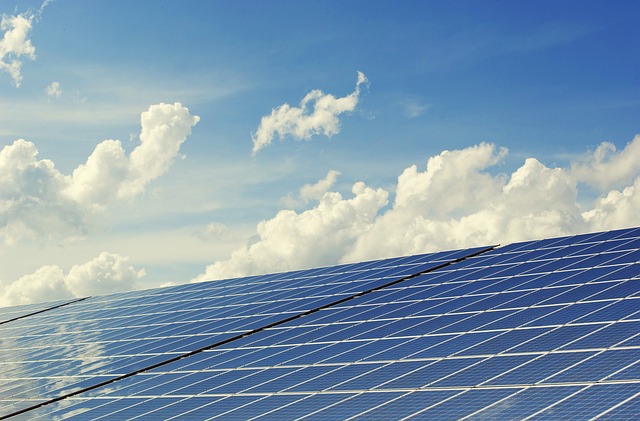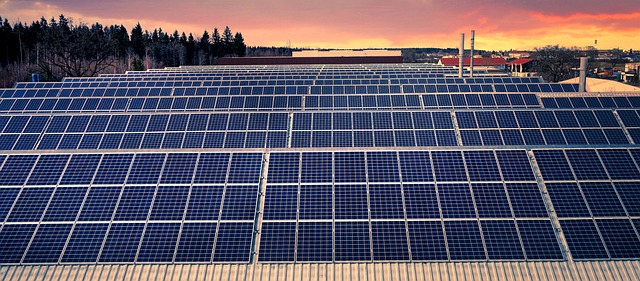Optimizing a solar power system involves aligning its design with an establishment's energy consumption patterns to enhance efficiency. By analyzing one year of energy usage data, the size and angle of solar panels can be fine-tuned for maximum sunlight exposure, especially during peak demand hours. This approach also informs the choice of energy storage solutions to maintain a consistent power supply. The integration of smart meters and monitoring systems allows users to track their energy consumption in real-time, enabling adjustments that further improve system performance. This data-driven strategy not only increases solar energy generation efficiency but also supports long-term sustainability goals, offering financial savings and environmental benefits. Solar power is a strategic choice for reducing reliance on traditional energy sources and adopting clean, renewable energy. Customizing the solar setup considerate of local weather conditions, roof orientation, and shading factors, coupled with selecting the right size and efficiency of solar panels based on sunlight availability, ensures optimal system performance. The addition of smart technologies facilitates dynamic management of the solar system, allowing users to scale up or adjust their energy storage as needed. By adopting these solar solutions, individuals and businesses contribute to a lower carbon footprint while achieving economic savings and promoting overall sustainability.
When harnessing solar power, a bespoke system designed around your unique energy requirements is paramount for maximizing efficiency and sustainability. This article guides you through the essential steps of crafting a tailored solar power solution that aligns with your daily energy consumption patterns. From assessing your usage to understanding the technicalities of panel types and inverters, each aspect is considered to ensure your system not only meets your immediate needs but also adapts as they evolve. We delve into the factors influencing power generation, the financial benefits, and the critical elements of safety and reliability. With a focus on customization, this comprehensive guide will equip you with the knowledge to design an optimal solar power system for your home or business, ensuring a bright and energy-independent future.
Understanding Your Energy Consumption Patterns for Optimal Solar Power System Design

Solar power systems are most effective when they align with a home or business’s specific energy consumption patterns. To design a solar power system that meets your energy needs optimally, it’s crucial to have an accurate understanding of your energy usage throughout different times of the day and seasons of the year. This insight allows for the tailoring of your solar array’s capacity and the configuration of its components to capture the maximum amount of sunlight when it’s most beneficial. For instance, analyzing electricity consumption data over a period of 12 months can reveal peak usage times, helping determine the size and placement of solar panels for optimal sun exposure during those periods. Additionally, assessing historical energy patterns can inform the selection of the right storage solutions to manage energy supply stability. By integrating smart meters and monitoring systems, users gain real-time data on their consumption habits, which further refines the efficiency of the system. This approach not only maximizes solar power generation but also ensures that the investment in solar technology delivers sustainable returns over time, aligning with the goal of leveraging clean energy sources to meet your unique energy requirements effectively.

Integrating a solar power system into your energy portfolio is a strategic move that can significantly reduce your reliance on traditional power sources. When designing a solar power system, it’s crucial to assess your energy consumption patterns and environmental conditions to tailor the system to your specific needs. Solar panels are available in various sizes and efficiencies, and the number and type of panels you choose will be dictated by your daily energy requirements and the amount of sunlight your location receives. Factors such as roof orientation, local weather data, and shading from nearby structures must be considered to optimize system performance and ensure a reliable energy supply. Additionally, the battery storage capacity should be chosen based on your home’s electricity usage and any backup power needs you may have. By carefully analyzing these elements, a customized solar power solution can be crafted that maximizes efficiency, cost-effectiveness, and energy autonomy.
Advancements in solar technology have made it more accessible and efficient than ever before. The integration of smart technologies allows for real-time monitoring and management of your solar system, enabling you to track production and consumption patterns. This data can inform further adjustments to the system, such as expanding panel capacity or fine-tuning energy storage solutions. Moreover, incorporating solar power into your home or business contributes to a reduced carbon footprint, aligning with global sustainability goals. By understanding your energy needs and leveraging the latest in solar technology, you can create a power system that is not only environmentally friendly but also economically advantageous over time.
In conclusion, transitioning to solar power presents a sustainable and cost-effective solution for meeting your energy demands. By carefully analyzing your energy consumption patterns, homeowners and businesses can design a solar power system that not only aligns with their daily needs but also maximizes efficiency and savings. Embracing this clean energy source not only benefits the environment but also offers a predictable and resilient power supply. As the technology continues to advance, solar power emerges as a cornerstone of future energy strategies. Investing in a tailored solar system is a prudent step towards harnessing the sun’s potential and reducing reliance on traditional energy sources. With proper planning and professional guidance, solar power can be an integral part of your energy strategy, ensuring both financial and environmental sustainability.
